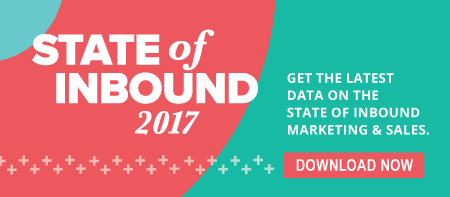
It's not news to say that a blog is an essential component of a thriving business site. Blogs have long been established as indispensable and irreplaceable. This is great. The not-so-great flipside is that blogs are now ubiquitous. Everyone and their cat has a blog, and the internet is crowded with dry and listless business blogs that are lacking in personality, purpose, and context. So, before you slump right in to obligatory blogging with your eyes half open, make sure that you are blogging for the right reasons.
benefits
First off, you should be blogging because you understand the benefits it affords your site and your brand. Here's a quick review for those in the know, and something to send to your new intern or old school boss to bring them up to speed.
traffic
Blogging increases traffic to your website. Each blog post you publish is a brand new indexed page on your site, upping your performance in organic search. This is a wonderful cycle in which the more you blog, the more new people will be able to find your blog — and buy from your store, and follow you on Instagram, and so on. Furthermore, blogging increases traffic through your social channels when you share your blog posts and your followers click, like, share, and comment. Check out this great HubSpot blog to help you maximize traffic with an effective blog schedule.
lead conversion
The inbound marketer doesn't waste any opportunity to leverage content. Everyone who reads all, or even part, of a blog post has invested some of their valuable time in what you have to offer, so find out if they are interested in more. Accompany blogs with enticing calls-to-action to convert readers into leads. If you are getting started with CTAs, HubSpot has put together 50 free templates for you to get started in PowerPoint.
long-term results
Unless you dismantle your blog and delete your posts, they stay up long after they're initially published. Often, we focus on the publish date as the moment of truth: seeing how many subscribers clicked through to the post, who read on RSS, and who clicked on the social link within 24 hours. While this intial reaction is important, it's crucial to remember that people will continue to stumble into your blog from your homepage and find posts through search — months and even years after you publish them. While some blog posts are timely, like those promoting an upcoming event, other blogs are evergreen, or timeless. Evergreen posts can become compounding posts that climb up in search rankings over time. So, for example, if you write the most comprehensive blog on gelande quaffing the internet has ever seen, it will get found every time someone is trying to figure out what that is.
purpose
Hey, "I want more traffic, lead conversion, and work that works for me! Sign me up," right? The trouble is, that's where many bloggers stop. Blogging for the benefits leads to transparent and flimsy blogs, like calling someone on the phone without having anything to say. Wait, strike that — blogging without purpose is like calling no one on the phone and having nothing to say. Before you write, you need to understand the rhetorical context of your content: who is the audience, what is its focus or scope, and what is its purpose. The need for context extends across your entire blog and to individual posts.
as a Means to an End
A blog without purpose is a weak blog. Hitting your computer with the intention of writing a blog post as a means to create traffic for your site will not be effective. We've all read the self-promotional blog, the business blog that features only its own products and services, and the spotty blog that jumps around from random topic to random topic. Unfortunately, that could be you unless you are organizing your blog around a purpose and writing content that your audience wants — and needs — to read. Obligatory blogging is like working a job you don't care about: your heart isn't in it, and it shows.
-OR-
as a chance to share enthralling and educational content
To blog with purpose, you first need to strategize the right purpose for your blog. Use the part of the rhetorical context you already understand to fill in the blanks. Start with your audience. Who might read your blog? Are they the same people who might become customers or clients? Align your blog's audience with your target market by writing to your buyer personas. Knowing your audience will bring you to focus and purpose: what do those people want to read? What do they need to know? Do they have time for in-depth articles, or are they into fun, sharable lists? Do they need someone to breakdown the benefits and drawbacks of the latest software for them, or are they interested in the latest industry research translated into language they understand?
Set your business apart as a thought leader, a credible source for information. Need an example? HelloFresh is a meal delivery service, so their target audience is people who want to eat healthy, fresh food but don't have all the time in the world to prepare it. The purpose of their blog is to build credibility and inspire people to be creative in the kitchen. Rather than promoting their own services exclusively, they share blogs like 15 Simple Ways to Use Up Your Summer Tomatoes, providing their audience with free recipes. This doesn't undercut their ability to sell recipes packaged with ingredients, it strengthens their position as a go-to source.
Write content that those people will actually want to read, content that will help them do their job better, live their lives better, and content they will be excited to share with their friends and colleagues. When your target audience reads your blog, they should be enthralled, educated, and excited about what they've read. That will reflect back on your brand, making you a trusted source of information. This will all translate into more traffic, more leads, and more long term results than if you focused only on those metrics from the start.
Trust us, we know what we're talking about. Blogging is one essential component of a robust inbound marketing strategy. Download the report on State of Inbound 2017 to learn more about inbound marketing today.
Topics: business blogging






